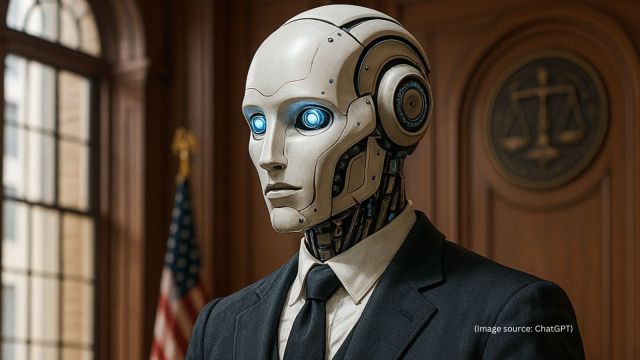New York court halts hearing after 74-year-old man uses AI attorney; leaves judges fuming: ‘I don’t appreciate being misled’
When asked if the avatar was his attorney, Jerome Dewald casually responded, “I generated that.”
 Dewald is also behind a startup focused on developing AI tools for people representing themselves in court
Dewald is also behind a startup focused on developing AI tools for people representing themselves in courtArtificial Intelligence has engulfed our lives. From drafting emails and touching up photos to answering our questions and helping with tasks, people arw using AI everywhere possible. But as this technology becomes more accessible, people are starting to test its boundaries — sometimes in ways that raise serious ethical concerns.
Take, for example, a recent case in New York that left a courtroom stunned. A 74-year-old man named Jerome Dewald appeared before the New York State Supreme Court Appellate Division to challenge a decision in an employment dispute. Representing himself, Dewald submitted a video to present his arguments — but what played on the screen wasn’t him. Instead, it was an AI-generated avatar delivering his speech in a calm, articulate voice: “It may please the court, I come here today…” said the avatar, beginning the argument.
Initially, the judges were under the impression that this person on-screen was a legal representative. But when asked if the avatar was his attorney, Dewald casually responded, “I generated that.” That revelation brought the proceedings to an immediate halt.
Justice Sallie Manzanet-Daniels, frustrated, said: “It would have been nice to know that when you made your application. I don’t appreciate being misled. Shut that off.”
The moment, caught on video, quickly gained traction online, sparking a wave of reactions.
Watch the video:
View this post on Instagram
Some viewers were outraged by the stunt, while others were amused, seeing it as an unexpected clash between old-school courtroom procedures and futuristic tech. One user joked, “What in the Saul Goodman??!” while another wrote, “74 and using AI as a lawyer. He’s living in 2035.”
According to The Verge, Dewald is also behind a startup focused on developing AI tools for people representing themselves in court. This revelation didn’t sit well with the bench. As seen in the viral clip, Justice Manzanet-Daniels told him, “You are not going to use this courtroom as a launch for your business.”
According to New York Post, after the backlash, Dewald sent an apology to the judges, explaining that he didn’t mean to mislead anyone. “My intent was never to deceive but rather to present my arguments in the most efficient manner possible,” he wrote. “However, I recognise that proper disclosure and transparency must always take precedence.”
This isn’t the first time AI has stirred controversy in a courtroom. Back in June 2023, two lawyers relied on ChatGPT to assist with legal research — only to discover that the AI had invented fake cases. That misstep earned them and their firm a $5,000 fine from a federal judge.




- 01
- 02
- 03
- 04
- 05

























